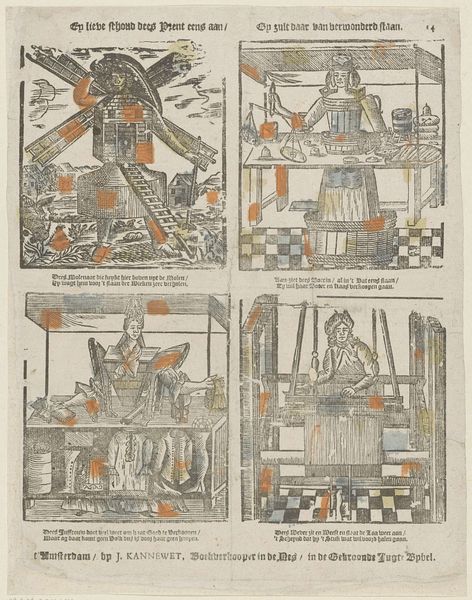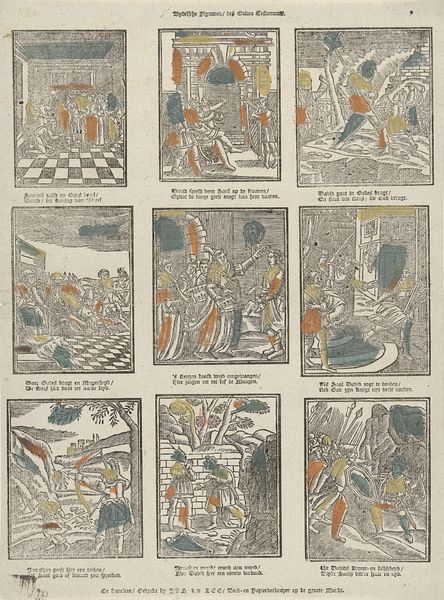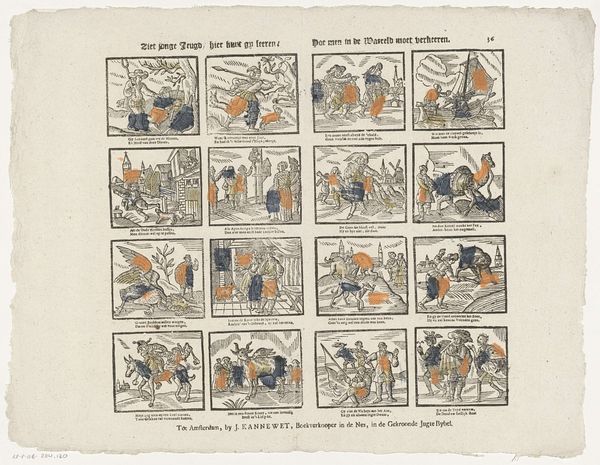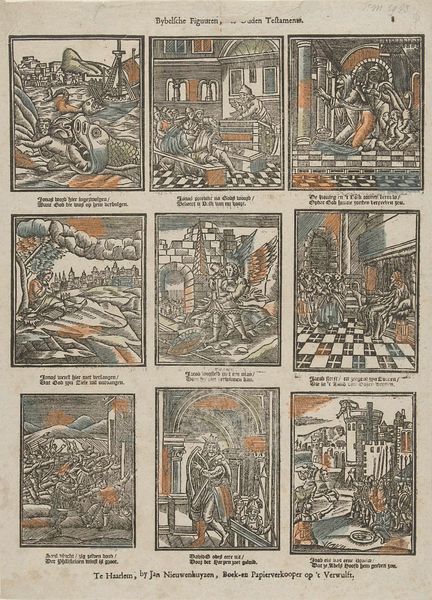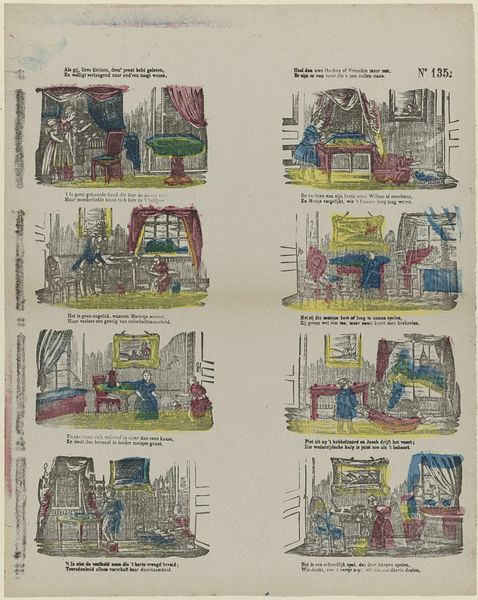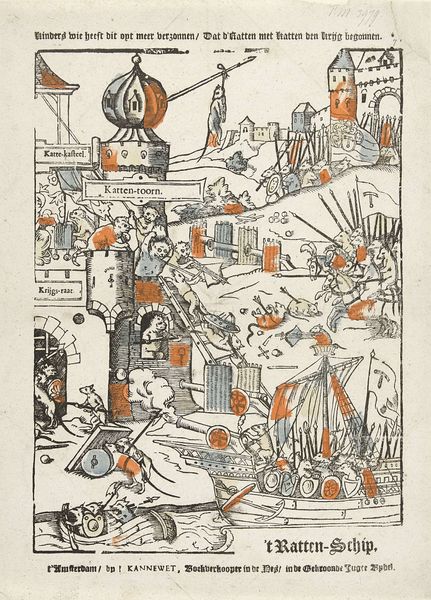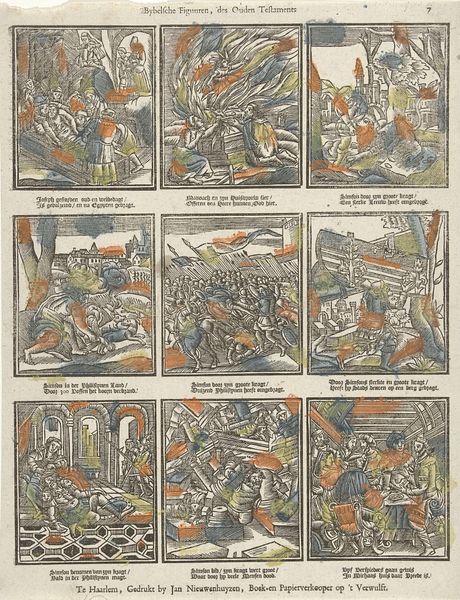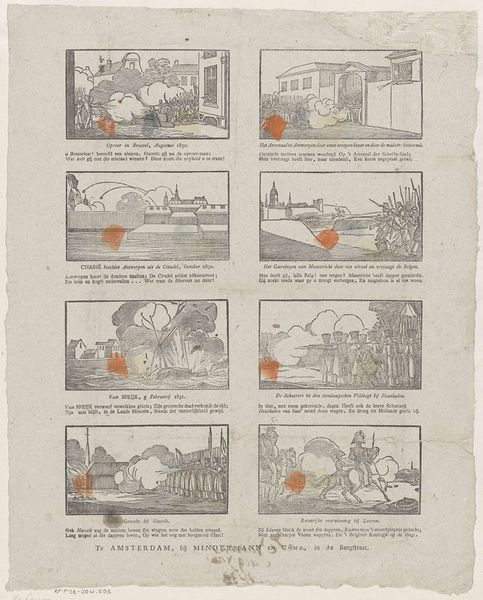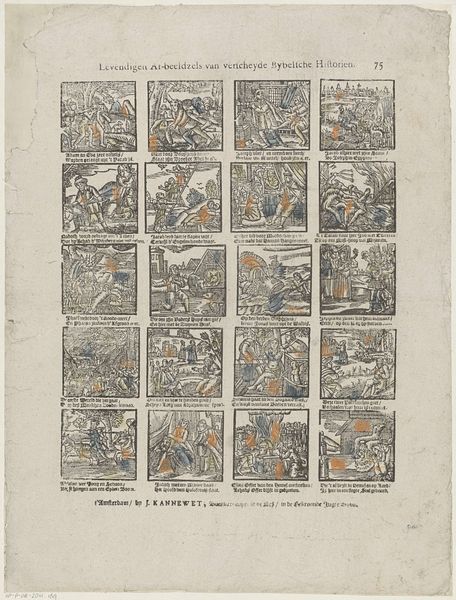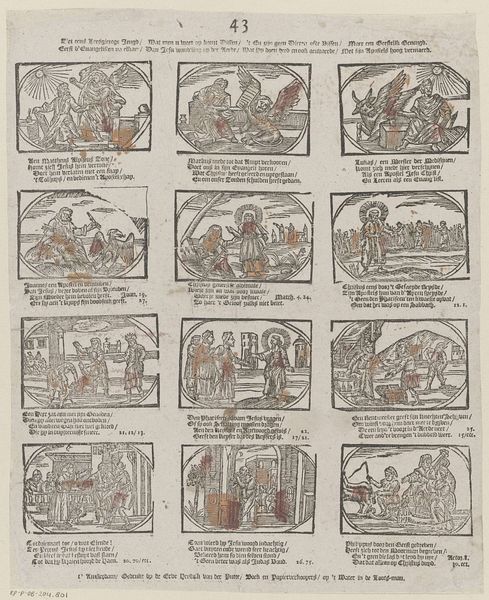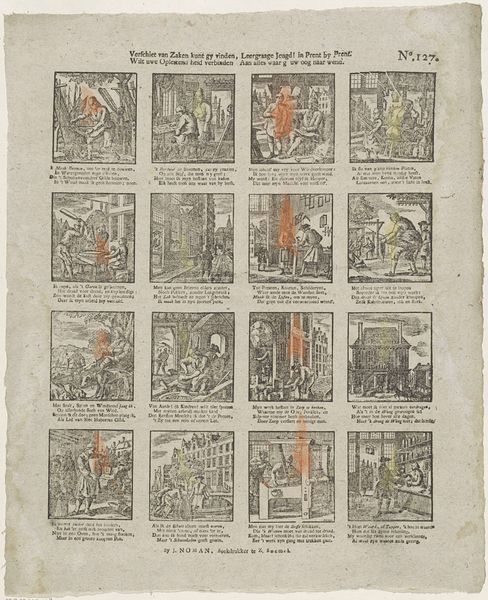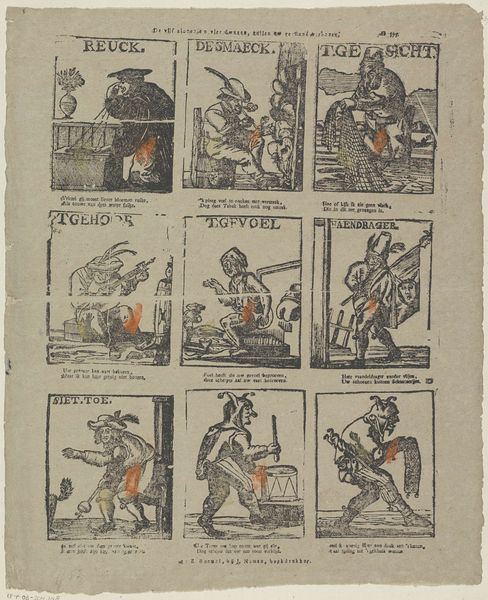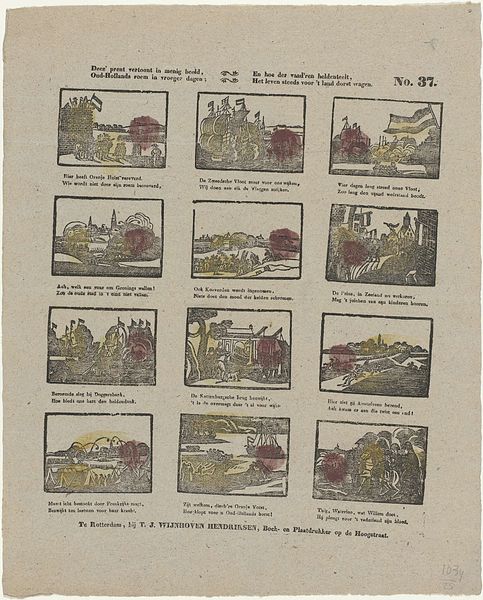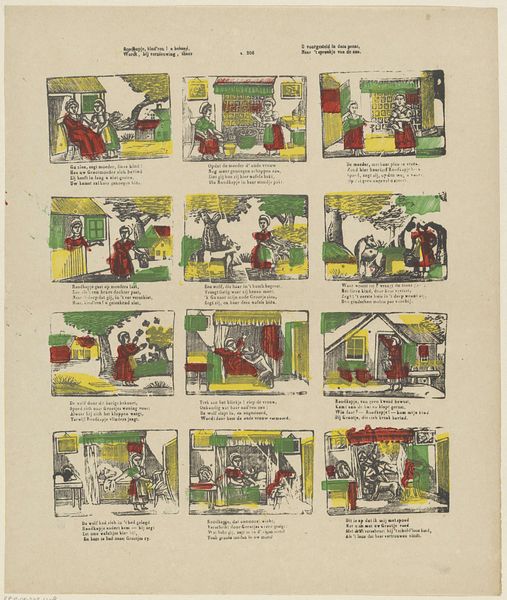
Ey lieve schoud dees prent eens aan / Gy zult daar van verwonderd staan. 1725 - 1780
0:00
0:00
johannesiikannewet
Rijksmuseum
print, weaving, woodcut
#
narrative-art
#
dutch-golden-age
# print
#
weaving
#
woodcut
#
line
#
genre-painting
Dimensions: height 365 mm, width 310 mm
Copyright: Rijks Museum: Open Domain
This print, made by Johannes Kannewet in Amsterdam, presents four scenes of Dutch trades. Though undated, it reflects a period when the Dutch Republic thrived as a mercantile power. Each panel depicts a different trade - milling, selling herring, tailoring and weaving - and shows a figure hard at work. Through these images, Kannewet touches on the economic activities that defined Dutch society, subtly highlighting its commitment to industry and commerce. The inclusion of a weaving scene speaks to the growing textile industry. The herring seller and the miller remind us of the importance of natural resources and food supply. Even the act of printing itself, Kannewet's own trade, becomes part of this visual record of industriousness. To understand this print more fully, one might consult archives of Dutch trade records, guild regulations, and local histories. Through these sources, we can better understand how art like this both reflected and shaped the social values of its time.
Comments
No comments
Be the first to comment and join the conversation on the ultimate creative platform.
